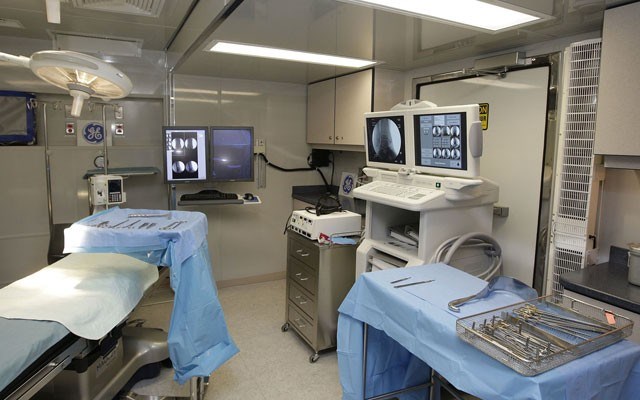Event producers in the Sea to Sky corridor may be asked to cough up more money for medical services this summer.
The suggestion comes in the wake of last summer's jam-packed events schedule during which the Whistler Health Care Centre had its back against the wall during peak periods. The Squamish General Hospital has also faced challenges.
Concerns are now mounting over the financial and operational pressures on health care as the corridor heads into another full summer of festivals and events.
"Right now I know we're in reactionary mode," said Dr. Bruce Mohr, chief of staff for the Whistler Health Care Centre (WHCC), of the move to find ways to cope with the increasing demands on the health facilities.
The issue has become a top priority for Vancouver Coastal Health (VCH) this year.
"Our future is responding to these events," said Laurie Leith, coastal operations director for VCH. "That's a major focus for us to try and work with all of our partners."
Event organizers will be asked to submit their medical plans three months in advance and, if they are not good enough, it will be back to the drawing board.
They may be asked to chip in for beefed-up medical services, over and above what they already provide for participants.
"We are trying to improve upfront communication and collaboration with event organizers, so that we can establish appropriate and safe medical plans for event attendees, and that we understand what each other's role will be in managing any casualties," said Leith. "If VCH is not happy with the event's medical plans, we will seek to reach consensus together and perhaps in some instances, we may ask for funding support from event organizers if necessary."
The problem, always hovering in the background with the ebb and flow of Whistler's tourists, came to head last year.
It was Ironman's inaugural year in Whistler. Thirteen competitors were treated at the Whistler Health Care Centre; at least six of those were transferred to Vancouver. That's over and above those competitors that were dealt with at the events' own medical tent.
The triathlon officially ends at midnight; contrary to normal operating hours, the centre stayed open throughout the night to deal with the late-night arrivals, many of who were participants in dire straits, the people who have used up all their energy and resources to get to the finish line.
"So now you had the really, really sick people coming here," explained head nurse Janet Hamer.
The major problem was stomach bleeding, or bleeding intestines. The patients are treated with a Protein Pump Inhibitor, a specific drug for gastrointestinal bleeds.
There was barely enough of the drug at the clinic that night to treat the patients.
"We'll have more (this) year," vowed Hamer.
Similarly, eight people who attended the Squamish Valley Music Festival last summer had to be transferred to the Squamish Hospital, their medical issues too serious, or complex, for the events' own medical team.
Two of those were patients with anaphylactic shock reactions to bee stings.
"It's always been our mandate to treat and monitor as much as we're able to in a remote setting," said Paul Runnals, the festival's executive producer.
The feedback after last year was that the transfer from the music festival put strain on the small community hospital.
This year's plan is to ramp up the medical services on site and plans are already in place to have discussions with VCH.
"Our budget is more than doubling this year, as is the size of the medical staff," said Runnals.
The festival will overlap on a Crankworx weekend in Whistler, which is an added concern.
Whistler Blackcomb (WB) would not share stats about how many mountain bikers are generally injured during the 10-day Crankworx festival.
"From what we've looked at since the event's been in place, the number of competitor injuries is not that significant," said WB's safety manager Brian Leighton. "We're not denying that there's more volume from the mountain to the clinic, but they're not necessarily competitors."
Still, Dr. Mohr will be lobbying to have the provincial Mobile Medical Unit on hand throughout the festival to deal with the onslaught of patients.
"You should expect to get a major trauma," he added. "It's just the nature of the business."
"The chances of seeing two traumas at once, for example, is something that's foremost on our mind at an event like Crankworx."
In addition to a medical tents, many event producers pay for ambulances to be on standby too.
Those ambulances, however, only transfer to the centre; they do not take patients to Vancouver, another complication.
"How do we lobby on their behalf to get more car availability for these major events?" asked Mohr.
Mohr compared the situation to the RCMP, which beefs up its services with more officers during busy times such as the May long weekend and New Year's Eve.
Ironman had a $17.3 million economic spin off in the province last year, with $3.2 million in federal and provincial taxes. Crankworx and Squamish Valley Music Festival have multi-million impacts on the community too.
"Certainly, when we have the busiest summer ever, as we did last year, we're going to need more servers in the restaurants, we're going to need more clerks in the stores, we're going to need more hotel managers in the hotels, and we're also going to need more police, and more health care workers and more ambulance drivers," said Mayor Nancy Wilhelm-Morden.
"We hold these events, provide the planning for some of the events and it (helps) raise the $1.1 million in daily revenues that go to the three levels of government, and then the government has additional resources upon which to draw to pay for those additional services that are needed."




